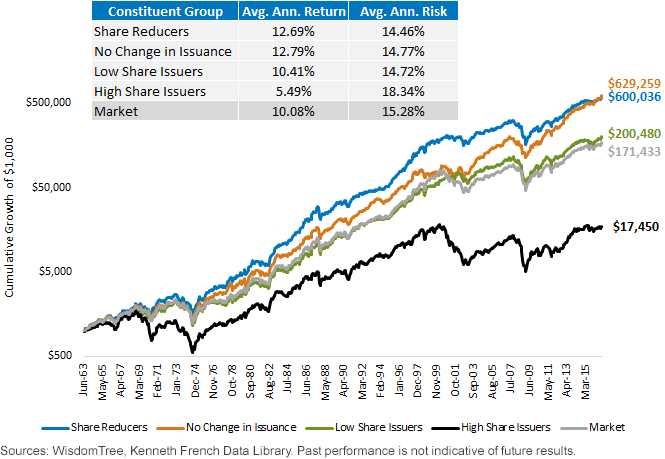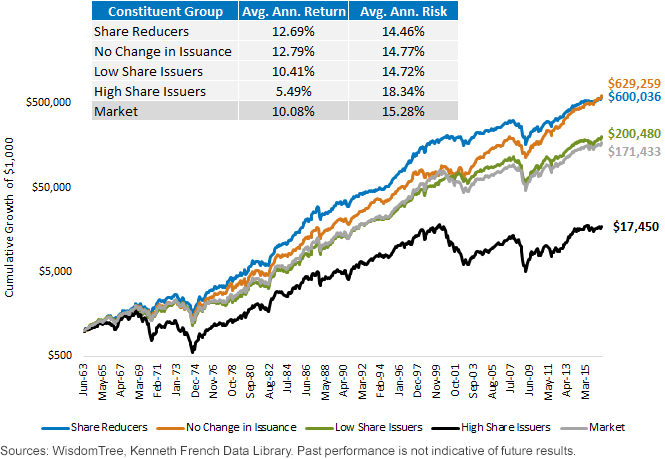
Share buybacks have become a major focus of conversation within the investment industry—most recently due to speculation that if the U.S. government were to institute some sort of “repatriation holiday,” profits currently being held overseas to avoid taxation would be utilized largely for share repurchases to thereby “goose” earnings-per-share (EPS) growth by reducing the number of shares outstanding.
However, in a broader sense, do firms that implement share buyback programs actually lead to stronger returns?
The Importance of Net Issuance
When judging a firm’s share buyback behavior, it’s critical to think in terms of the net change in the number of shares outstanding, as opposed to any gross level of share buybacks. Firms issue shares to raise capital that they cannot otherwise access, as they wouldn’t want to give away ownership in future profits lightly. Therefore, we look at four distinct groups of stocks based on net share issuance behavior:1
How Net Issuance Led to Differentiated Equity Returns in U.S. Equities
(Cumulative Growth of $1,000 Based on Share Issuance Groupings)

















